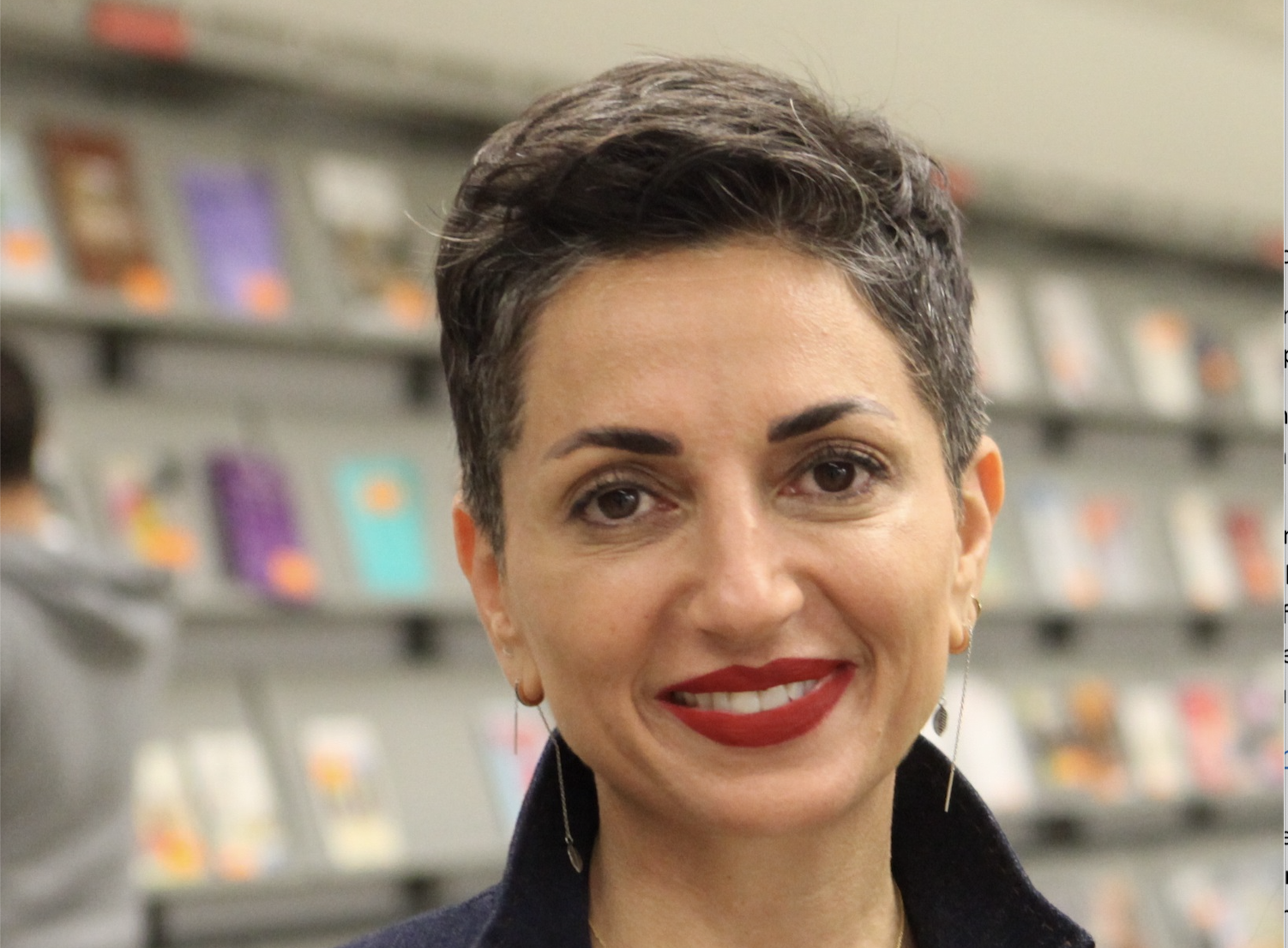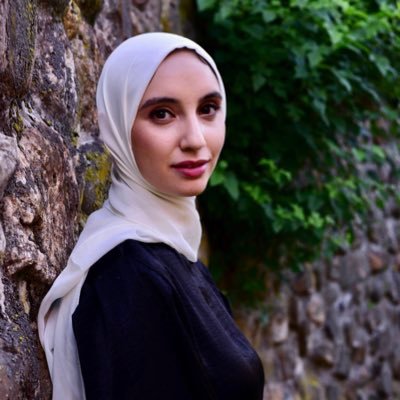It is said that poverty wears a woman’s face. Today, protest also wears a woman’s face.
In contemporary Arab movements for rights and justice, women are at the forefront. This is not unusual, as women worldwide have long been leaders in advocating for peace.
In recent days, it has been impossible to miss the contagious images of courage in Sudan. Specifically, the picture of Alaa Salah, standing on a car, finger pointed to the sky, challenging decades of oppressive rule, demanding a better future for Sudan, has captivated people worldwide. “I never expected mypicture would spread so much,” Alaa tweeted recently, “but I am glad that the world got to see that there is a revolution in Sudan.” Alaa has been instrumental in placing Sudan on the geopolitical map. This is long overdue. Sudan has suffered decades of violence – from the conflict in Darfur, known as the first genocide in the 21st century, to ongoing bloodshed with neighboring South Sudan, the world’syoungest country. It is rare to hear good news coming out of Sudan. Until now.
According to research conducted by The Arab Institute for Women (AiW), where I serve as Executive Director, women in Sudan bear the brunt of uniquely gendered abuses at the hands of Al Bashir’s regime. Under the current Sudanese penal code, women can be flogged and arrested for their dress. Girls as young as ten can be legally married. Rape has been an integral part of the systemic violence inflicted on Sudanese citizens, particularly in Darfur. Sudan is one of six countries that have failed to ratify the Convention on the Elimination of all forms of Discrimination Against Women (CEDAW). Despite these challenges, and contrary to the dominant Western narrative about Arab women, women in Sudan, and around the region, have always been active in movements for freedom.
Alaa Salah stated that “Sudanese women have always participated in revolutions … see Sudan’s history, all our queens have led the state. It’s part of our heritage.” It is estimated that two-thirds of protestors in Sudan have been women. This is not due to a higher moral fiber of women, rather, Sudanese women are willing to put themselves on the frontlines because they have suffered the most abuse under the current regime. The revolution’s first goal was to demand the resignation of Al Bashir, who had beenindicted by the International Criminal Court for acts of genocide and crimes against humanity in Darfur. Sudanese women inspired and led a peaceful movement that ended 30 years of brutality. Today, Alaa is an icon. But she is not the only one. Just as the world witnessed young Malala confront the Taliban, Alaa, too, is viewed as an exception. An anomaly, even. But this is far from the truth; young women will continue to show leadership and be the face of change around the world.
The bottom line is that there is no sustainable peace without women. Participating in peaceful protest is not a luxury for women. It is a necessity because women bear the brunt of a state’s repressive policies –from loss of reproductive rights in the US, to forced marriages in Sudan. Women protest because they have the most at stake. And they have the most to lose. UN Security Council Resolution 1325 recognizes that women are critical to ending wars and to sustaining peace. Many other resolutions have added to this, building a global movement known as the Women, Peace, and Security Agenda.
The bottom line is that there is no sustainable peace without women.
I spent 15 years working in the UN with women in contexts of conflict, from Afghanistan to Central African Republic to Sudan. In every country in which I have lived and worked, young women like Alaa and Malala are ever present, pointing defiant fingers at oppression. These young women exist everywhere, and have given rise to many more young women, who will change the face of countrieserroneously labeled as “backwards.” These women are the face of freedom. They are the face of the future.
This future that recognizes women’s presence and power is long overdue, not only in Sudan. We have witnessed the violent misogyny that has undone hard-won rights for women around the world – including in the U.S. And we have been ignited into action. Women’s marches galvanize millions. Womenare claiming power at home, on the streets, and in public office.
In Afghanistan, a young Afghan man told me: “The world thought they could bring freedom to Afghan women, but freedom is only won from the inside.” So, too, in Sudan, and around the world, women are bringing freedom – their own freedom and that of the nation – on their own terms.
We’re seeing it here in the U.S., too. The recent incident with Representative Ilhan Omar is yet another example of women of color standing up and speaking out in the face of injustice, despite restrictive political climates and tangible threats.
Sudan faces a significant challenge in the coming years. The transitional government has an opportunity to undo the wrongs of its predecessors. It is not enough to invite women to the negotiating table. The negotiating table needs to be brought to women. This is not a gesture of tokenism or an opportunity for a meme. Sudan’s future is at stake, and women are – and have always been – at its forefront.
Without women in leadership positions, Sudan risks repeating its tragic history. The international community must show solidarity with women in Sudan after the meme has faded and world attention has been diverted.
Alaa Salah has had her media moment. And now our fleeting attentions turn to a church in Paris, which in 24 hours has garnered more funding and support than Sudan has in decades.
It is not enough to invite women to the negotiating table. The negotiating table needs to be brought to women.
There is a new generation of women leaders in Sudan. They are the flame that has ignited and inspired the country. Will they get our support? We owe it to these young women to support the changes they seek and have spent decades working to achieve.
Notre Dame will be rebuilt. But Sudan may not be. Alaa Salah said it best: “You cannot have a revolution without women. You cannot have democracy without women.”
Dr. Lina Abirafeh is the Executive Director of the Arab Institute for Women at the Lebanese American University – based in New York and Lebanon. Her background is in gender-based violence prevention and response in development and humanitarian contexts. She brings over 20 years’ experience in countries such as Afghanistan, Haiti, Democratic Republic of Congo, Nepal, and others.


















1 Comment